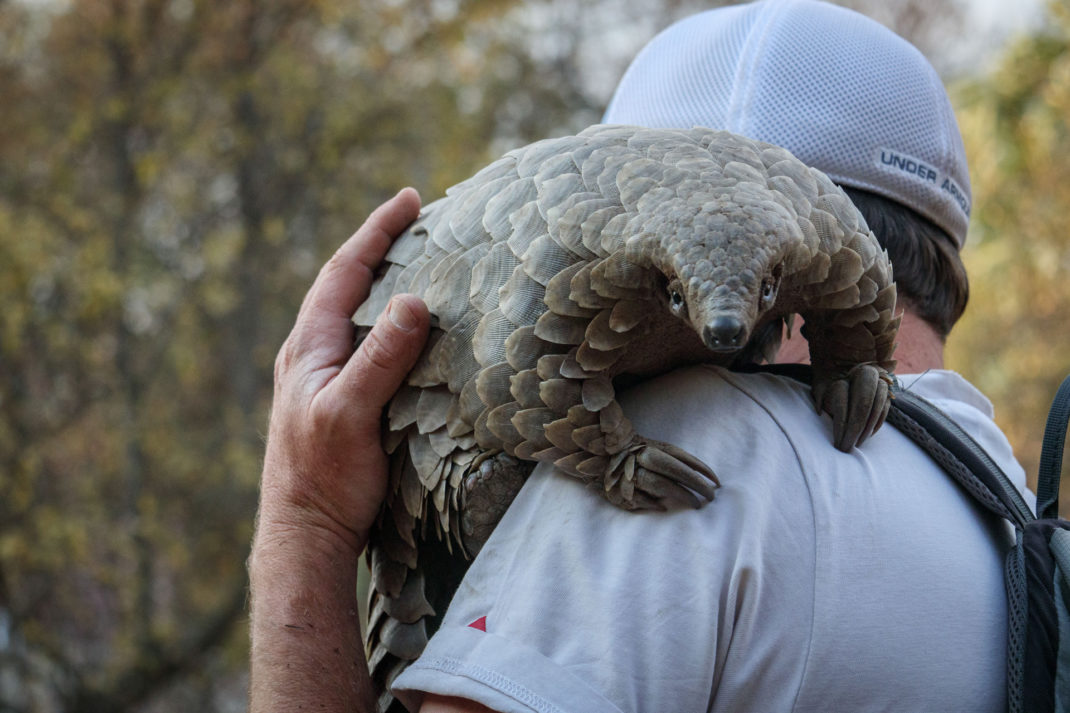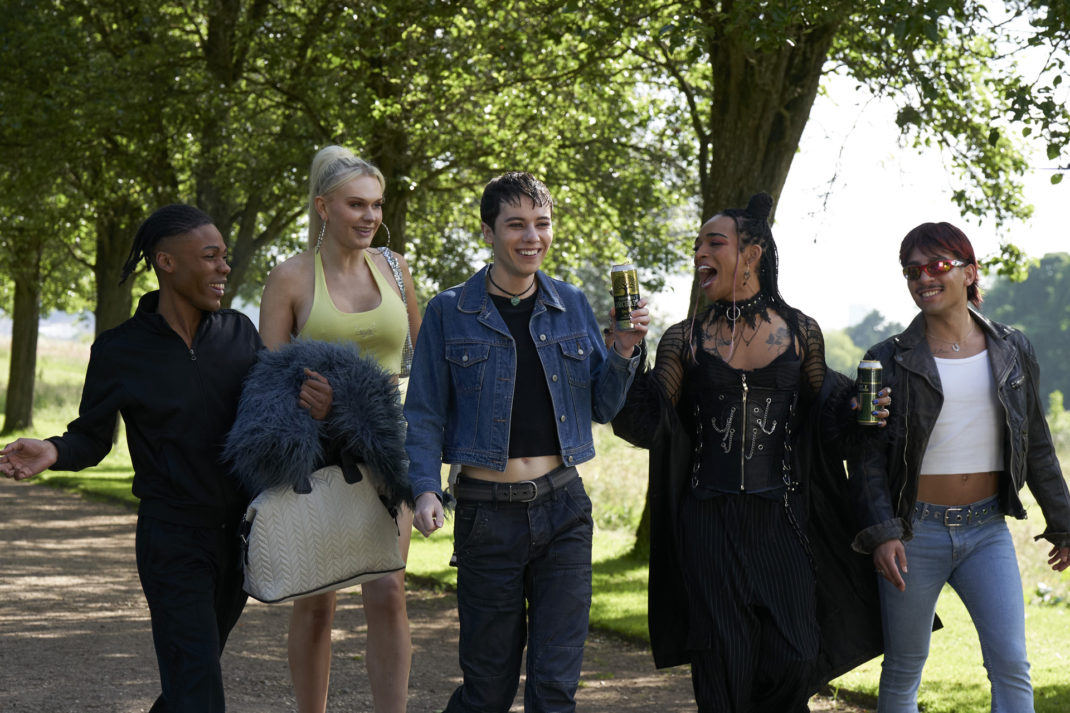Want To Fight Climate Change? Here’s How
By
5 years ago
We speak to Natalie Isaacs, founder of 1 Million Women, about how women can change the world

With recent research showing that a fifth of countries are at risk of ecosystem collapse, taking steps to protect the planet is more important than ever. We speak to Natalie Isaacs, founder of 1 Million Women, to find out what we can all do to make a difference.
Your Guide to Saving the Planet
Empowerment is a word Natalie Isaacs, founder of 1 Million Women, uses a lot. ‘When you do something small and see the result, it’s an incredible feeling of empowerment,’ she explains over a grainy Zoom call from Australia early one morning.
The passion driving her is palpable, even from the other side of the world. All red hair and pale skin, Isaacs looks like she’s fallen out of a Pre-Raphaelite painting. But she’s no passive muse; she’s here to take charge and change the world, one woman at a time.
For Isaacs, it started small – switching off lightbulbs and taking appliances off stand-by left her with a 20 percent lower energy bill and a huge feeling of empowerment.
It’s the small, everyday changes like this that Isaacs built 1 Million Women around, encouraging women from across the globe to join the fight against climate change and environmental destruction.
Her new book, Every Woman’s Guide to Saving the Planet, tells the story of her journey from businesswoman to committed environmental activist. Before her big epiphany, she was a successful entrepreneur with her own cosmetics company, and several skincare lines. She was as aware of the growing climate crisis as anyone in the early Noughties, but struggled to see what she alone could do to help.
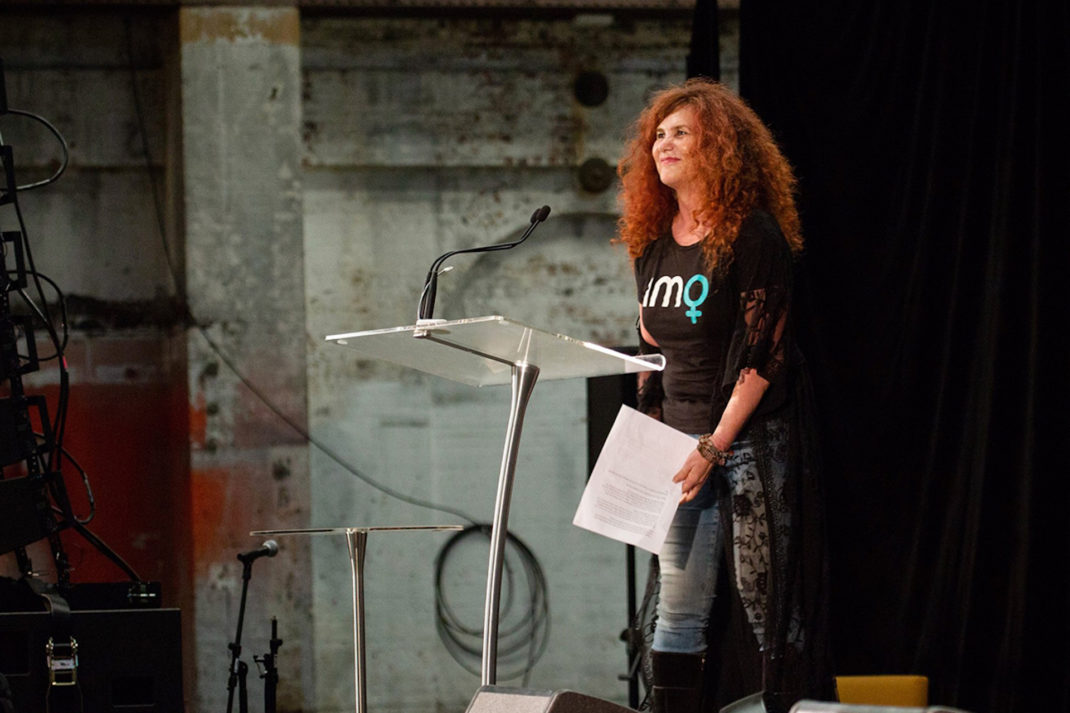
Natalie Isaacs takes to the stage at a 1 Million Women event
It took a few of things to change her mind: the first was watching Al Gore’s An Inconvenient Truth with her daughter, and the second was consulting on her friend’s energy saving lightbulb business. Finally, it was on reading the first draft of her husband’s book on Australia’s climate change wars that Isaacs reached her tipping point – and for the light switch.
She writes: ‘I can still remember the moment I saw the results of my actions, right in front of my eyes, and the feeling of exhilaration when I realised one truth. I am powerful.’
Reducing electricity turned into cutting food waste, which turned into minimising her family’s consumption completely. Before she knew it, Isaacs had started 1 Million Women with her co-founder Tara Hunt. ‘I’d never marched on the street for anything before,’ she explains, still sounding a bit amazed.
My first question had to be the obvious one: why women? Don’t we have enough on our plates already? It seems a bit unfair to add saving the future of the planet from environmental catastrophe onto our already heaving to-do lists.
‘After I had my epiphany and changed my lifestyle, I looked at what to do next,’ explains Isaacs of her decision to focus on women. ‘There were literally millions of environmental organisations, but there was nothing that really seemed to speak to me at that moment as a woman that had just done this total change in her life.’
She then did some research and discovered that women and children in developing countries are the most vulnerable to the consequences of climate change, like rising sea levels, drought, food scarcity – a litany of nightmarish effects straight from a Mad Max film. Isaacs also found that women make 75-85 percent of the consumer decisions that affect their households’ carbon footprints – and so were best placed to make the grassroots lifestyle changes the environment is crying out for. But, despite all this, women are underrepresented around policy making tables, negotiating tables and boardrooms around the world.
‘I just thought that there was nothing that covered the intersection between women’s empowerment and climate action. It was a no brainer at the time that this had to be about women.’
She called her organisation 1 Million Women because of the enormity of the problem facing the planet. ‘I couldn’t call it 10,000 women or 1,000 women – it had to be a million women because of the how critical this issue is.’
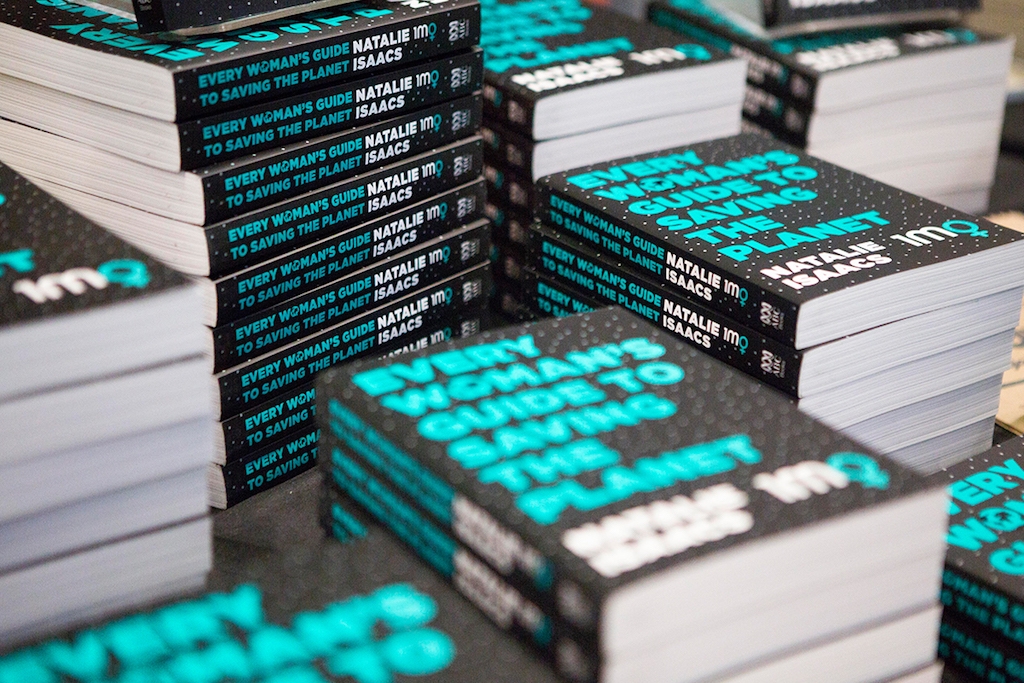
The organisation’s head count now stands at 965,000 women globally and Isaacs admits it’s taken a lot longer to get there than she initially anticipated. ‘We had 40,000 women join us by the end of the first year, but I thought we’d get one million. It wasn’t until six months in that I realised that, actually, behaviour change is a hard thing.’
Because that’s what 1 Million Women encourages: systematic change in the way we live our lives, from saying no to single-use plastics in the supermarket to changing how we travel, and switching to a bank or pension scheme that doesn’t invest in fossil fuels.
All these things seem simple in isolation – until you realise how much of our lives would need to change. And when half the vegetables in the supermarket come wrapped in three layers of plastic, and the local greengrocer doesn’t accept card payments, making environmental choices all the time is far from the simplest road to take.
Isaacs admits it isn’t always straightforward: ‘It’s not easy because it’s the structured framework of our high consumption society that we’re trying to do this in. The only way to do it is to get out of that structure.’
But still, she says transforming our everyday lives is an unavoidable reality in the fight against climate change. ‘The way we live is a critical piece in the puzzle of how we fight the climate crisis. Right now, we have this window that is getting smaller. And we have to do everything that’s possible.’
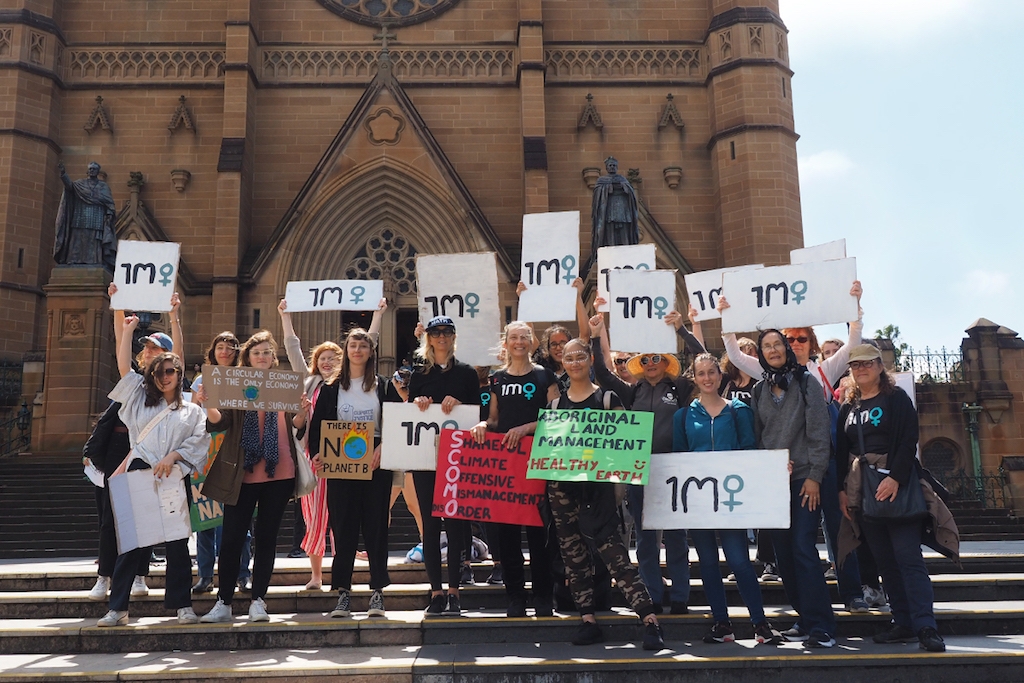
1 Million Women protesting at the Sydney climate strike
She continues: ‘If millions of people do the same things, it would shift systems. If millions of us didn’t buy a brand that had layers of packaging, it would no longer exist, or it would change the way it did things.’
But Isaacs, and 1 Million Women, have bigger ambitions than just getting people to ditch the plastic and cut their energy bills. Next on the agenda? Women’s political empowerment. ‘Over the last year or so 1 Million Women has been building its voice much more,’ Isaacs says. ‘We’ve been getting more involved in teaching women about how to use their vote, how to use their voice, how to use their influence, how to be empowered. We talked about bite-sized actions at the beginning, but now we’re talking about the power of our money.’
And there’s never been more of an appetite for the kind of seismic lifestyle changes that Isaacs describes in Every Woman’s Guide to Saving the Planet. The last couple of years have seen the rise of Greta Thunberg and the schools’ strikes, the devastating bush fires that swept across Australia, and many other natural disasters across the globe. The growing public mood in favour of living greener, more sustainable lives, coupled with the lingering effects of the Covid-19 crisis and the social changes demanded by the Black Lives Matter movement, mean that this is a chance for us all to transform the world for the better.
‘Around the world we’ve been in lockdown. And we have seen how the world responds in the face of adversity, what it does to literally change the system, and listen to the scientists,’ says Isaacs. ‘Now that we’re starting to emerge from our homes, there is this opportunity to carve out a new path.’
Isaacs’ passion is certainly infectious, and her rallying cry to women around the world to empower themselves is admirable. So much so that, later that day I find myself visiting my local zero waste shop to buy a friend a birthday present – no plastic, no packaging, no guilt. I also find myself eagle-eyed, looking for appliances left on stand-by and lights left on in empty rooms.
These are small steps, but ones I think Isaacs would approve of. As she said herself at the end of our interview: ‘We cannot just simply go back to the way things were. It wasn’t working. We’ve got this chance to do things differently now.’
Everywoman’s Guide to Saving the Planet, by Natalie Isaacs, is out now; 1millionwomen.com.au
MORE INTERVIEWS: Interview with Model & Philanthropist Noëlla Coursaris Musunka / Interview with Marine Tanguy: Founder of MTArt Agency / Interview: Arizona Muse on How to Live a Better Life

